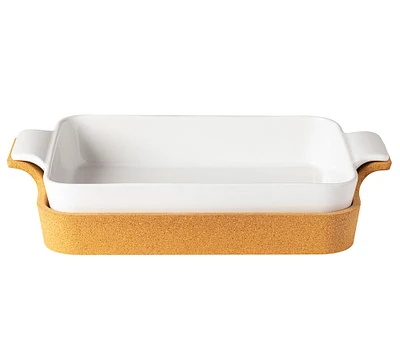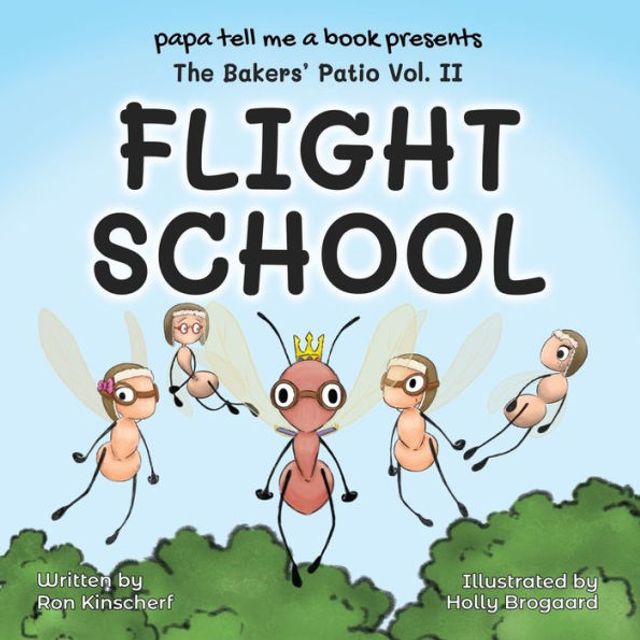Home
Live at Baker's
Barnes and Noble
Live at Baker's
Current price: $16.99


Barnes and Noble
Live at Baker's
Current price: $16.99
Size: OS
Loading Inventory...
*Product information may vary - to confirm product availability, pricing, shipping and return information please contact Barnes and Noble
Thanks to
Funk Brother
Dennis Coffey
's personal archive, we now have three volumes of the Detroit guitar master's gigs on Motor City nightclub stages. The first and second,
Hot Coffey in the D: Burnin' at Morey Baker's Showplace Lounge
(
Resonance
) and
One Night at Morey's: 1968
Omnivore
) showcased his work in
Lyman Woodard
's trio with drummer
Melvin Davis
(from different sets on the same evening).
Live at Baker's
) finds the guitarist leading his own quartet at Detroit's oldest jazz venue, Baker's Keyboard Lounge, in 2006. Without edits or overdubs this "as-it-happened" set leans heavily on jazz tunes but allows room for his brand of funky psychedelic soul and blues.
Coffey
seldom plays any tune straight; he is groove-centric and a supreme melodist, and leaves plenty of room for tunes to develop spontaneously on the bandstand. With this group -- Grammy-nominated drummer
Gaelyn McKinney
, keyboardist
Demetrius Nabors
, and bassist
Damon Warmack
-- the guitarist allows his approach to interpret canonical jazz tunes and standards. A sultry, summery read of
Freddie Hubbard
's "Little Sunflower" has more of a bossa vibe than the original.
's lead line is sumptuous and open, creating space for
Nabors
and
Warmack
to accent and vamp on his silvery, humid lines as they slip and slither through the mix while
McKinney
builds on kept time with subtle breaks.
's equanimous view of music is audible in the performance of his own legendary psych-funk hit "Scorpio" that was completely revisoned for jazz quartet; however, as it unfolds, a dynamic force emerges. The interplay between
's wah-wah vamps,
' Rhodes work,
's massive funk, and
's rim shots and snare breaks are breathtaking.
reworks his recorded performance on the
Temptations
hit "Just My Imagination," where he claims and takes chances with the melody -- like a singer would -- as the band dreamily flows around him. Two jazz classics fall in immediately afterward: a swinging, bluesy post-bop read of
Jimmy Smith
's "The Sermon" (with startling, inventive soloing from
Miles Davis
' "All Blues," delivered with his simmering "tonal center" approach in encountering modalism. The end result is a spacious, texturally elegant jazz-blues. He leads the band back to soul with the
Jazz Crusader
's stellar "Way Back Home" that retains its balance between melancholic nostalgia and feel-good, down-home gospelized soul.
's heartfelt solo finds tenderness and joy in the reverie with gorgeous comping from
. Closer "Dink's Blues" finds the guitarist paying homage to
Jack McDuff
and the guitarist who played on it:
Grant Green
, who
knew and who also spent time in Detroit.
reinvigorates the reading by using Rhodes instead of organ, while
comps and delivers tight, tasty guitar breaks; everybody gets room to solo and delivers big. With their energy, inventiveness, and loose vibe, the 1968 recordings are wonderful and necessary.
reveals the mature artist at a creative peak, still interested in the discovery of any tune's hidden self -- it is also more intimate, spontaneous, and better recorded. This is essential
. ~ Thom Jurek
Funk Brother
Dennis Coffey
's personal archive, we now have three volumes of the Detroit guitar master's gigs on Motor City nightclub stages. The first and second,
Hot Coffey in the D: Burnin' at Morey Baker's Showplace Lounge
(
Resonance
) and
One Night at Morey's: 1968
Omnivore
) showcased his work in
Lyman Woodard
's trio with drummer
Melvin Davis
(from different sets on the same evening).
Live at Baker's
) finds the guitarist leading his own quartet at Detroit's oldest jazz venue, Baker's Keyboard Lounge, in 2006. Without edits or overdubs this "as-it-happened" set leans heavily on jazz tunes but allows room for his brand of funky psychedelic soul and blues.
Coffey
seldom plays any tune straight; he is groove-centric and a supreme melodist, and leaves plenty of room for tunes to develop spontaneously on the bandstand. With this group -- Grammy-nominated drummer
Gaelyn McKinney
, keyboardist
Demetrius Nabors
, and bassist
Damon Warmack
-- the guitarist allows his approach to interpret canonical jazz tunes and standards. A sultry, summery read of
Freddie Hubbard
's "Little Sunflower" has more of a bossa vibe than the original.
's lead line is sumptuous and open, creating space for
Nabors
and
Warmack
to accent and vamp on his silvery, humid lines as they slip and slither through the mix while
McKinney
builds on kept time with subtle breaks.
's equanimous view of music is audible in the performance of his own legendary psych-funk hit "Scorpio" that was completely revisoned for jazz quartet; however, as it unfolds, a dynamic force emerges. The interplay between
's wah-wah vamps,
' Rhodes work,
's massive funk, and
's rim shots and snare breaks are breathtaking.
reworks his recorded performance on the
Temptations
hit "Just My Imagination," where he claims and takes chances with the melody -- like a singer would -- as the band dreamily flows around him. Two jazz classics fall in immediately afterward: a swinging, bluesy post-bop read of
Jimmy Smith
's "The Sermon" (with startling, inventive soloing from
Miles Davis
' "All Blues," delivered with his simmering "tonal center" approach in encountering modalism. The end result is a spacious, texturally elegant jazz-blues. He leads the band back to soul with the
Jazz Crusader
's stellar "Way Back Home" that retains its balance between melancholic nostalgia and feel-good, down-home gospelized soul.
's heartfelt solo finds tenderness and joy in the reverie with gorgeous comping from
. Closer "Dink's Blues" finds the guitarist paying homage to
Jack McDuff
and the guitarist who played on it:
Grant Green
, who
knew and who also spent time in Detroit.
reinvigorates the reading by using Rhodes instead of organ, while
comps and delivers tight, tasty guitar breaks; everybody gets room to solo and delivers big. With their energy, inventiveness, and loose vibe, the 1968 recordings are wonderful and necessary.
reveals the mature artist at a creative peak, still interested in the discovery of any tune's hidden self -- it is also more intimate, spontaneous, and better recorded. This is essential
. ~ Thom Jurek

















